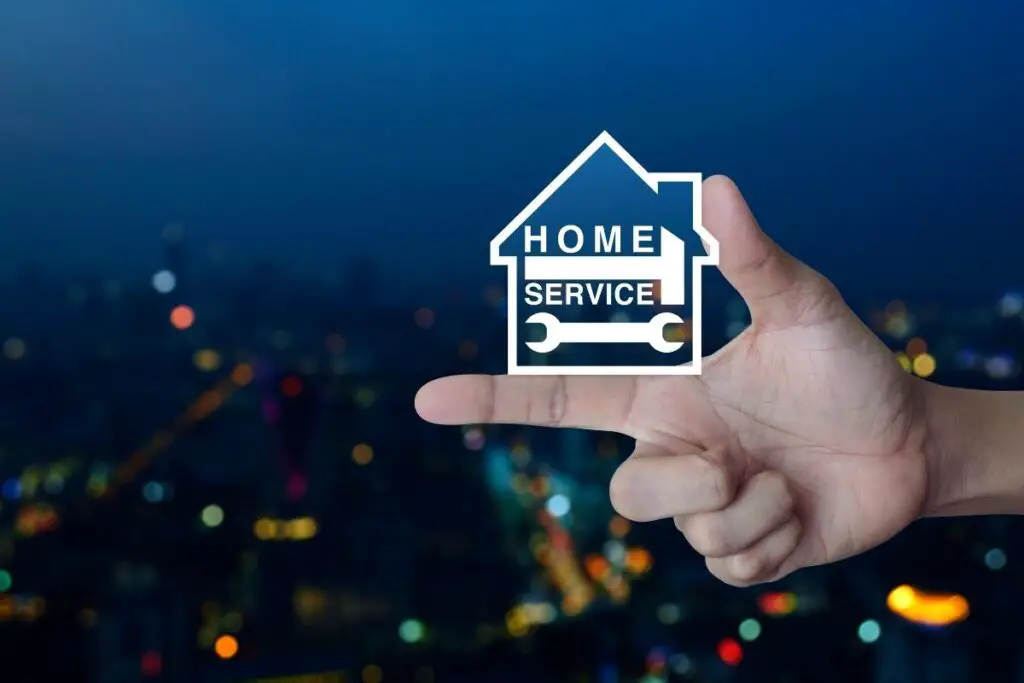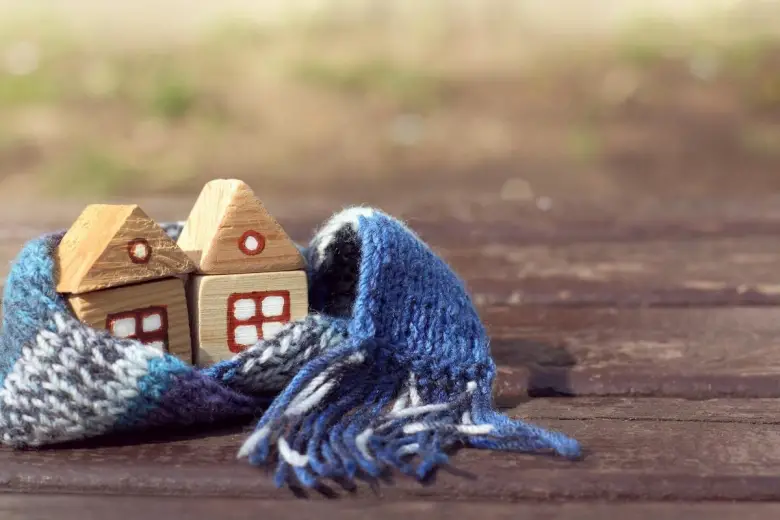At least 90 percent of seniors hope to remain in their own homes, or at least out of nursing facilities, as they age. Being able to age in place improves seniors’ quality of life, self-esteem, and life satisfaction. This may necessitate the need for home services.
Health challenges, normal aging, and financial instability can make it more difficult for seniors to maintain an independent living situation. A strong support system is essential to the success of a senior’s plan to remain in their own residence. Therefore, you must be honest about the practicality of aging-in-place for yourself or your loved ones and find support services when needed.
Seniors left to their own devices may become depressed as their social interactions decrease due to mobility issues. Falls can become life-threatening if not treated promptly because no one has checked on the mom or dad in a day or so. Cognitive impairments may go undetected and lead to situations that may result in injuries. Even just forgetting the morning dose of medication can have harmful repercussions.
Let’s look at the types of homemaker services available in most areas and agencies that provide these services.
Types of Homemaker Services Available in Most Areas
Generally, the types of homemaker services fall into one of the following categories:
House Maintenance
When I first started working for an Area Agency on Aging we had a home maintenance program. We employed a part-time carpenter/handyman who would visit low-income seniors’ homes to do minor maintenance, install wheelchair ramps, winterize windows, etc.
Unfortunately, it didn’t last long. The projects were funded entirely through donated money, which eventually dried up. That was our situation, but it’s possible such a program exists in your (little federal or state money is usually available for this). Contact the Area Agency on Aging in your area and ask if such a service exists if you need physical changes made to your home.
Homemaking Services
Maintaining a household can be troublesome if there are physical or mental challenges due to illness or aging. Keeping up with the laundry, cleaning, paying bills, making appointments, shopping, and general home maintenance might be more than a senior can handle.
Fortunately, many states offer homemaker services under their Medicaid program. The Veterans’ Administration also offers this service. If you qualify for Medicaid in your state, and meet any other eligibility requirements they have for the program, it’s possible homemaker services could come to it. Unfortunately, for many people that qualify, it can still be a challenge for the agencies providing the service to find reliable workers willing to do it.
Transportation
Poor vision, slower reflexes, or memory issues might mean driving is no longer an option for many seniors. Therefore, understanding how to use rideshare apps and knowing about senior discounts for trains, buses, and taxis can help older individuals get to where they need to go. In addition, many areas even have senior special transportation services. Again, contact the Area Agency on Aging in your area to ask.
If you qualify for Medicaid in your state, transportation is typically covered for non-emergency medical needs.
Personal Care
If a senior needs help with daily living tasks such as bathing, dressing, or meal preparation, this would be considered personal care. However, the time a personal care assistant is needed may vary, with some seniors requiring only a quick daily check-in, to others needing 24-hour live-in care. Again, this is typically a covered service under Medicaid if you meet whatever other eligibility requirements are set in your state’s program.
Healthcare
Many agencies have visiting nurses and therapists who can provide home healthcare services. Hospice care is another service that can be arranged in the home.
Companionship
Some communities have day programs for local seniors that provide socialization. Many provide pick-up and drop-off services as well. Some senior daycare providers also offer limited health services for participants, such as cognitive training or exercise classes.
A companion will provide the social interaction a homebound senior can no longer access. A companion may also take on some of the home maintenance tasks such as meal preparation, laundry, and light cleaning. A companion could be live-in and therefore available 24 hours a day, or a companion might be a daily visitor. Typically these are volunteers.
Homecare Service Providers
If you are looking for someone to fill one of the roles mentioned earlier, you could look at full-service agencies or independent providers in your area. If you qualify for Medicaid, they could be covered entirely. If you do not, you will likely have to pay privately.
Full-service agencies can match your needs with a caregiver or assistant on their staff. These individuals have already been pre-screened. The agency guarantees their experience, qualifications, and lack of criminal record through background checks. The agency also takes care of paying the caretaker and providing a replacement if the worker is unavailable for whatever reason. The disadvantage to using a full-service agency is the cost of the service.
Independent providers will cost less and often be able to fill more than one service need. However, you are responsible for interviewing candidates, completing background checks, and finding replacements.
Popular Full-Service Agencies
Most full-service agencies are just what they sound like, full-service. They can provide a wide range of services. Most have customizable plans that may work for your situation. Check out these full-service agencies if you are ready to enlist help with your in-home needs.
Visiting Angels
Visiting Angels may be just what you need if you are looking for a companion, personal, respite, or specialized home care. This agency can match you with a companion that takes care of light housekeeping duties, prepare meals, and help with errands. The companion might have regular weekly duties or be on-call for respite care.
For individuals that need assistance with bathing and dressing or help with their chronic conditions like diabetes or Parkinson’s, then Visiting Angels can provide you with someone to help with personal care. They also offer specialized services for Dementia and Alzheimer’s Care and hospital-to-home transitional care.
To find out if Visiting Angels has services in your area, contact the nearest office. They will come to your home for the home care assessment and share information about the staff they have that meet your specific needs.
Home Helpers
Although the services that Home Helpers offers vary by location, they stress that they create customized care plans to meet clients’ individual needs. And indeed, they provide numerous levels of care options, from wake-up/tuck-in services to 24-hour/live-in care.
Companionship home care is very flexible. It might include participating in the senior’s favorite activities, playing games, talking, shopping, recreational outings, going to doctor’s appointments, and helping seniors connect with their families through video or phone calls.
The wake-up service is designed to help seniors start the day off right. Depending on the level of independence the senior has, an employee will begin by getting them out of bed and assist with any bathing or dressing tasks. A nutritious breakfast and medication reminders are given.
The tuck-in service makes sure dinner is prepared and cleaned up. The caregiver will help with hygiene tasks, such as bathing, brushing teeth, and changing into pajamas. Additionally, the caregiver will check to ensure the stove is off, windows and doors are locked, and electronics are charged.
Homemaker services might include meal preparation, cleaning and organizing the kitchen and bathrooms, vacuuming and sweeping, changing bed sheets, doing laundry, pet care, plant care, and conducting periodic checks of safety equipment like smoke detectors.
To see if Home Helpers can help you, check the location listing to contact the nearest agency for the in-home care assessment.
How to Locate Independent Homecare Providers
Online job boards are one place to start your search for an independent homecare provider. Some job boards cater to seniors specifically.
Care.com has both a senior listing and a housekeeping listing, doubling the chances you’ll find just what you need. You can even see the candidates’ background check status. Another site you’ll want to check out is caregiverlist.com. You’ll begin by completing an online assessment of your needs. You’ll then receive information about available providers in your area.
Where to Find More Affordable Homemaker Services
If you feel like you can’t afford homemaker services through a full-service agency, take heart. There are some surprising places you can look for support.
Medicare
As you are probably already aware, Medicare will not pay for 24-hour in-home care, meal delivery, homemaker services, or personal care assistance. However, Medicare covers home services that can make the aging-in-place process less cumbersome for caretakers. In addition to direct medical care, including physical, occupational, and speech therapy and intermittent skilled nursing care, Medicare will provide medical social services.
A medical social worker can provide individual and family counseling and help you locate community resources available to you. Additionally, they can coordinate medical and non-medical services, including transportation, homemaker services, and meal delivery.
To qualify for medical social services, you or your loved one must be homebound, as certified by their primary care physician. Being homebound means that the individual has difficulty leaving home without assistance, either because they use a mobility device such as a walker or wheelchair or cannot leave the house without being accompanied.
Eldercare Locator
Eldercare Locator is run by the U.S. Administration on Aging. Eldercare can help you find personal care assistance and home health services based on your location. They also have a list of providers that can assist with household chores, home repairs, and transportation.
National Pace Association
PACE (Programs of All-Inclusive Care for the Elderly) is a program managed by the National PACe Association (NPA). This organization works to provide services that allow seniors to continue living in their homes. These services include personal care, chore services, transportation, and meal preparation.
Individuals must be over 55, live in a PACE organization service area, and be certified as needing nursing home-level care to qualify. However, seniors do not need to live in a nursing home or assisted living facility, making this perfect for in-home care situations.
PACE uses Medicare and Medicaid funding to provide these services, so applicants should have one or the other. There are 273 PACE centers in 32 states, providing services for more than 60,000 participants. To determine if PACE covers your area, check the map here.
Meals On Wheels
Seniors over 60 who are homebound may be eligible to receive in-home food delivery via Meals on Wheels. This organization is found in every state. Meals are guaranteed to provide at least one-third of the required daily nutrients. Each meal is priced on a sliding fee scale. See some sample menus to get an idea what’s offered.
Meals on Wheels community programs may also offer additional homemaker services. For example, some agencies have agreements with local businesses to provide home repair services, transportation, and pet food delivery for seniors in need.
Although the requirements for eligibility vary from agency to agency, in general, the process begins with an application, followed by an assessment. Some agencies also require a referral letter from a social worker or doctor.
Veterans Affairs
Veterans can apply to receive Homemaker and Home Health Aide Care in addition to skilled home health care, respite care, palliative care, and hospice care. A Homemaker and Home Health Aide can help with daily living needs, including meal preparation, transportation, shopping, and light cleaning. Veterans do not need to be senior citizens to qualify.
Supplemental Nutrition Assistance Program (SNAP) Online Purchasing Pilot
While you might be under the impression that SNAP, Supplemental Nutrition Assistance Program, is geared toward children, if you or your loved one is over 60 or disabled, this is a state welfare program you should consider. Even if other individuals are in the household, qualifying seniors may still receive assistance. Contact your state’s SNAP agency to find out more information.
Some states are participating in an Online Purchasing Pilot program that allows SNAP beneficiaries to purchase their groceries online and have them delivered using their EBT card. Delivery fees, taxes, and items not eligible under the SNAP program can not be paid for with SNAP benefits. A complete list of participating states and grocery stores can be found here. In case you’re curious, yes, Amazon is on the list. Talk about grocery shopping convenience!
AARP
Don’t overlook the assistance AARP can give you and your senior loved ones! AARP has offices in every state and a list of programs and companies that provide AARP members with special discounts for their services. To qualify for these discounts, you must be a current AARP member.
If you look at the most relevant in-home services, you’ll find discounts on Freshly, Schwan’s Home Delivery, Landry’s Kitchen, and Silver Cuisine in the category of in-home meal delivery. Caretaker services that offer an AARP discount include CareLinx, Lively Mobile Plus medical alert device, Lifeline medical alert service, and more.
National Association of Home Builders
It’s not uncommon for a home to fall into disrepair as the homeowner ages. Minor repairs that the owners could do themselves when they were younger become impossible tasks with limited mobility. Reduced finances cause essential modifications that would ensure the senior’s safety are not completed.
Simple but necessary home modifications may include:
- Installing nonslip flooring.
- Widening doorways.
- Replacing the bathtub with a shower with grab bars and grips.
- Adding ramps.
- Creating a bedroom or bathroom on the first floor.
- Adding brighter lights throughout the house.
The National Association of Home Builders has a list of certified aging-in-place specialists that can help make your dwelling safe and attractive for older adults. It also provides a list of each state’s home modification policies, including funding sources and programs that you may qualify for if you need to remodel your home to make it more accessible.
Conclusion
Just as it takes a village to raise a child, it takes a community to care for our elders. It’s an enormous burden on individual family members, and there’s no shame in enlisting the assistance of others. The programs and service providers listed above can help ensure that the senior years are happy, healthy, and fulfilling.




